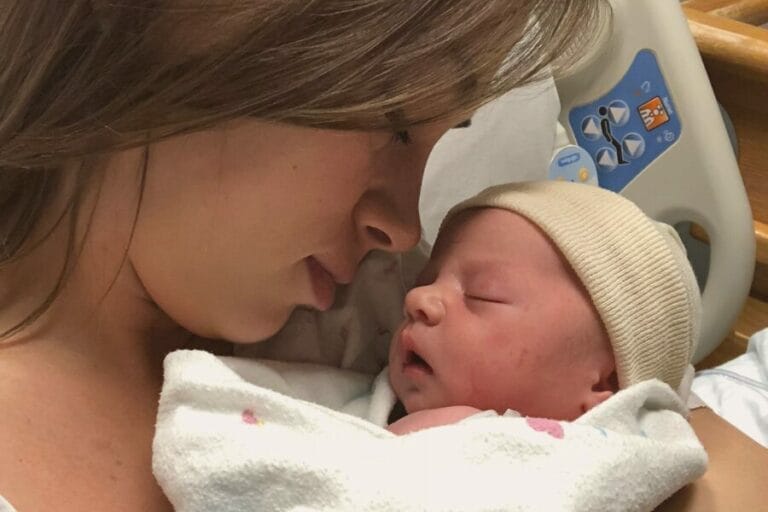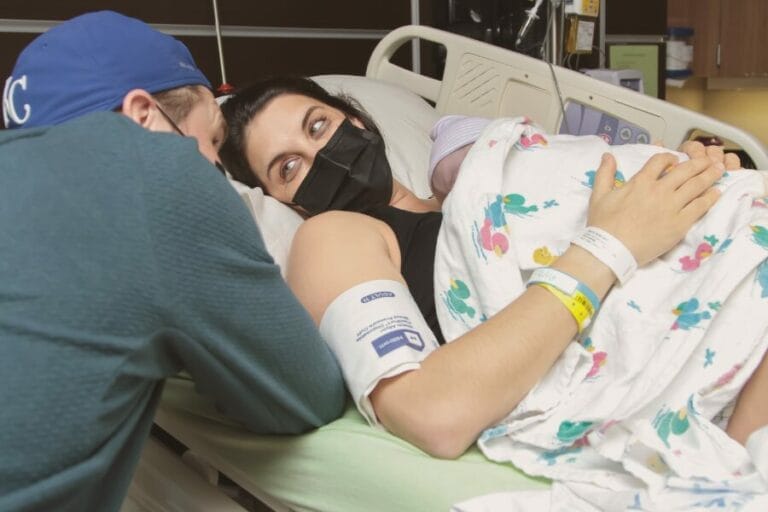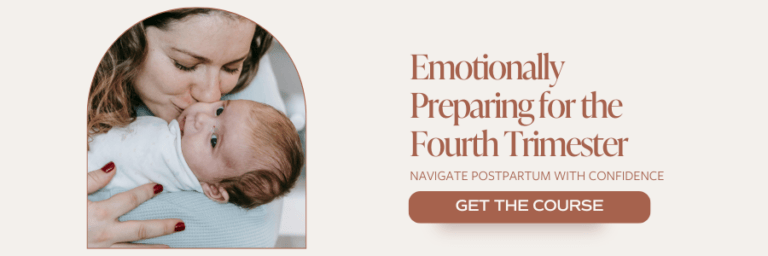What to Pack in Your Hospital Bag: Checklist, Tips, and Resources
When You Need To Pack Your Bag
Let’s talk about packing that all-important hospital bag. It’s a great idea to get it ready before you hit the 36-week mark. Life loves throwing surprises our way, and being prepared can save you a lot of last-minute stress. If you’re feeling that nesting urge and want to get ahead of the game, go for it! Just watch out for the temptation to keep adding things—you don’t want to end up overpacking.
Having everything set and ready to go can really help ease any anxieties you might have about that big day when your little one decides to make their grand entrance. Most of us will spend about 24 to 48 hours in the hospital, although if you’re having a C-section, you might be there for 3 to 4 days. This time could be a mix of boredom and discomfort, or it could be smooth sailing with a bit of planning.
Also, keep in mind, less is more! The last thing you want is to be making multiple trips to and from the car with armloads of stuff. We’ve found that the essentials usually fall into three categories: your comfort, your survival, and your post-delivery care. Want to take the guess-work out of it? We’ve rounded up our 6 favorite postpartum recovery kits for you to consider.
Your Hospital Bag Checklist For Mom
Comfort

PILLOW
The majority of your time in the hospital will be on a bed, and the pillows the hospital provides are not known for being of the highest quality. Often they are flat and are covered with a thin plastic. Bringing a trusted, comfy pillow that you can use as support could be a game changer. Toss those hospital pillows your partners way to get comfy in that hospital chair!
Clothes
Be pragmatic when it comes to clothes. Much of your time there you will be in a hospital gown and wearing mesh underwear provided for you. P.S. grab as many as pairs of those mesh underwear as you can to bring home with you! They are honestly better than anything you can find on Amazon. You can buy and use cute, personal hospital gowns, but they are likely to be soiled with the byproducts from the beautiful miracle you’re about to perform. Honestly those things are an Instagram fad and totally unnecessary in my opinion. But you do you, mama!
Instead, plan for what you will be wearing postpartum. Comfortable, baggy clothes will be your best bet. Real talk – I was bigger leaving the hospital than arriving. Yep, you read that right. Do not be fooled by all of the influencer birth pics you see, remember it’s their job to post beautiful pictures. I had an emergency c-section and was pumped full of fluids and could not fit into shoes when it was time to leave. My mom had to bring me house slippers to wear home. Ok back to that outfit, bonus points if it can give you easy access to a boob for feedings. A big, comfy bathrobe is a great option but again not necessary. Only bring this if you think it will make your stay more comfortable. A robe tends to take up quite a bit of packing space so if you’re hot natured, I’d skip it! We suggest you purchase a nursing camisole or bra for hospital casual wear.
SHOES OR SLIPPERS
You won’t be on the bed the entire time, and a functional pair of shoes or slippers will pay for themselves for the times when you’re not. Choose shoes that you can use around the hospital and while in the shower there. You might not love having to bend over to tie or tighten your shoes every time you put them on. Look at options that allow you to slip in and out of. Crocs fit these requirements. Think college dorm showers.
Be aware your feet may be too swollen to wear your normal size. And if you are known to get cold toes, you might want to bring warm slippers or socks with grippers on the bottom.

BRAS
Consider whether or not you would feel more comfortable in a supportive bra while resting in bed or during the pregnancy itself. We would suggest, for some ladies, bringing a dependable sports bra that would make you most comfortable. Once the baby is born, you should have a nursing bra or camisole for convenience.
MINDSET
If you have a birth plan, affirmation cards, or any other type of tool you plan to use to keep you in a positive head space be sure to pack this early, make it easily accessible, and let your partner know where it is located in case things pick up quickly!
Toiletries
When it comes to your hygiene needs during your hospital stay, pack like you’re going to the airport and keep everything travel size. The hospital will provide you with almost everything you need. You may want to bring some things just to feel better if you have brand preferences. For instance, your preferred soap, shampoo, and conditioner might lift your spirits a bit more than the generic options at the hospital.
Essential
- Toothbrush and toothpaste
- Face wipes or face wash
- Your favorite shower products in small travel bottles
- Deodorant
- Hair brush and hair ties or your favorite claw clip
Personal Preference
- Lip balm
- Mouthwash and floss
- Face and body lotion
- Q-tips
- Eye drops, contact lenses, and a contact case
- Dry shampoo
- Makeup
Survival Packing List
Snacks and Water
Entertainment
Sleep
Some lucky mamas can sleep anywhere. The rest of us should think hard about what it’s going to be like having to sleep in the hospital. Headphones, earplugs or maybe an eye mask might help some of us forget where we are for a moment of rest.
Some of us get cold more easily than others. Bring big socks and comfy clothes or a bathrobe and a (small) blanket if you really think you’re going to need it.
On the other hand, if you struggle to sleep because you’re too hot, find a small fan, like the stroller one you likely registered for, that can fit in your hospital bag and something to sleep in that will allow air flow like thin shorts. Plan your bag to your personal needs.
After Labor and Delivery
Hospital Bag for Baby
You should call and ask what exactly your hospital will likely provide for you and your new baby during your stay. Ask them what they think you should bring. They might even have this information on their website. Most hospitals in America are able to provide you with everything you will need for your postpartum recovery and care for your newborn.
This includes:
- Diapers
- Wipes
- Bulb syringes
- Pacifiers
- Swaddles
- Onesies
- Formula
- Bottles
- Hats
There are two things you might want to have (again call and check), one is an adorable outfit for your newborn to wear on their way home. Although, blowouts happen so you might want to bring two just in case. The other thing to think about is nail clippers or baby mittens (baby socks work well for those tiny hands too). The finger nails on newborns can be sharp! If you’re not careful they can scratch and hurt themselves. Plan ahead and make sure every problem has a solution that can be found in your bag.

Nursing / Feeding Needs
If you’ve been collecting colostrum make sure to bring it in a small cooler. The hospital will have ice you can use to keep it cold! Honestly, you don’t need much in terms of breastfeeding essentials at the hospital. Most lactation consultants don’t recommend you start pumping right away as your baby will be cluster feeding and your body will be doing its thing making milk. However, if you have an unexpected longer stay the hospital can provide you a hospital grade pump. I wouldn’t recommend bringing your pump to the hospital it has a lot of parts and is cumbersome to travel with considering all of the other items you’ll have with you.
Some mama’s will highly recommend bringing a nursing pillow with you. I think this is total personal preference. I prefered to scrunch up the hospital pillows under my elbow because again its a bulky item but there is value in having it with you! Bonus, most hospitals will have a lactation consultant rounding that will stop by and they could help assist you with properly using your pillow!
When you first start breastfeeding it is normal for your nipples to be tender or sore, however, it is also possible for them to bruise, crack, or bleed. We suggest you consider nursing cups. Small metal covers for your nipples when you are not feeding.
This study found that its participants who used nursing cups, rather than traditional care like creams and pads, had a quicker recovery time for nipple fissures and lesions while also relieving painful symptoms faster. They give your sore nipples a shield from your bra or shirt and promote a moisturized environment for them to heal. We suggest you plan for the worst, which would be two damaged nipples and one hungry baby.
If you’re planning on going the formula route instead of breastfeeding, it’s a smart move to call your hospital ahead of time and find out what formula they provide. This way, you can decide if you’re comfortable using their brand or if you’d prefer to bring your own. It’s also a good idea to chat with your pediatrician to get their take on the best formula options for your baby.
Hospitals often promote breastfeeding, but we totally understand that it’s not the right fit for every family. If you’ve decided to go straight to formula, make sure you or your partner are ready to have those conversations and stand by your choice. The last thing you need during such an emotional time is feeling pressured to follow a path that isn’t right for you.
You’ve got this!
Take Notes!
If you’re a pen and paper girly you might want to bring a pen and small notepad so you don’t forget everything the doctor is going to tell you. For example: answers to your many questions, doctor names and phone numbers, and your next appointment, There’s also the APGAR scores, medications, and information about possible damage to your body. Personally, I preferred to create a shared note in my iPhone!
It is possible, likely even, that you will not remember all the details of the moments and hours after you have given birth. This is important information and you should write it down, or put it in your phone, so it doesn’t become another thing to worry about when you’re finally a mama.
Ultimate Hospital Bag Checklist For Your Birth Partner

Tips About How to Pack Your Hospital Bag
You might be stuck in a hospital bed, but those with you are not. Use every resource you have strategically. If you’re worried about not bringing enough clothes, or too many, then pack a second bag that you leave with a trustworthy person.
What we’re saying is that your plan should be focused on making your panicked/excited trip to the hospital as easy and carefree as possible. You didn’t check the website or call ahead, and your hospital doesn’t have breast pumps? Good thing it’s with the bag left with a trusted person, they’ll bring it to you!
How you pack your bag is a personal preference. We prefer one solid bag with multiple separate bags packed inside. Need your phone charger or headphones? That’s in the little electronics bag. Those reusable grocery bags you always forget at home? One of them might be perfect to put your clothes in. Toiletry bags are a given, but we always opt for waterproof ones. Cross-contamination of your shampoo and your Oreos is something to be avoided at all costs. Speaking of, your snacks can just go in a plastic grocery bag.
A final note on what to bring, you know you better than anyone else. There might be an item that only you alone need. Whatever makes the process easier, bring it. Hopefully, there won’t be a whole lot of down time – the baby comes and you leave the hospital to go home as soon as possible. But it’s possible that won’t be the case.
Everything I Packed But Didn’t Actually Use

Still Have Questions About Packing A Hospital Bag?
A great place to start is your hospital’s website. You have plenty of other resources too – make sure you take advantage of them. Ask mothers in your life that have already been through it. Each likely has their own hospital story about something they wished they did differently. Something they should have put on their packing list. Don’t forget to have this conversation with your health provider or doula, and if you don’t have a provider you trust, we have sourced some for you on The Matrescence App.
If you still need help, or you’re in need of a community for support, we’re here for you mama. We built a safe space for you to learn everything you didn’t know you needed to know.
DOWNLOAD OUR FULL CHECKLIST








